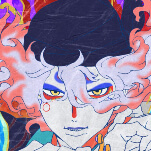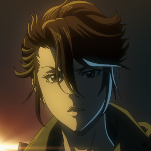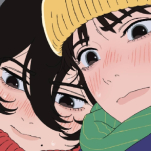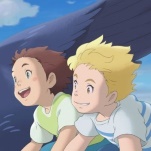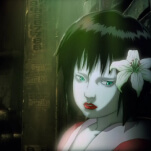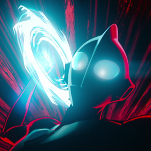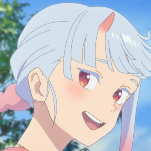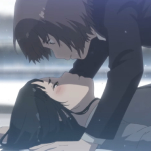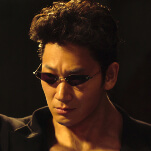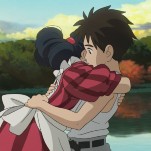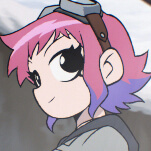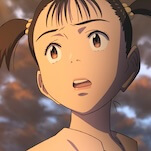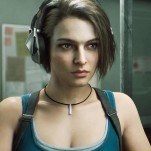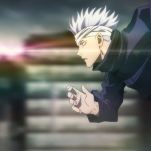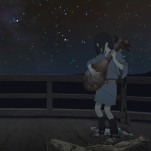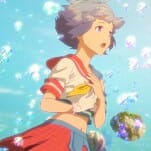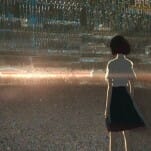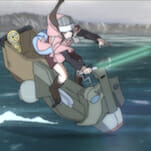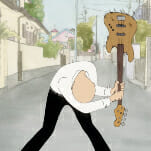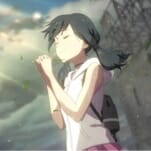Evangelion 3.0+1.0: Thrice Upon a Time Chases the Perfect Ending
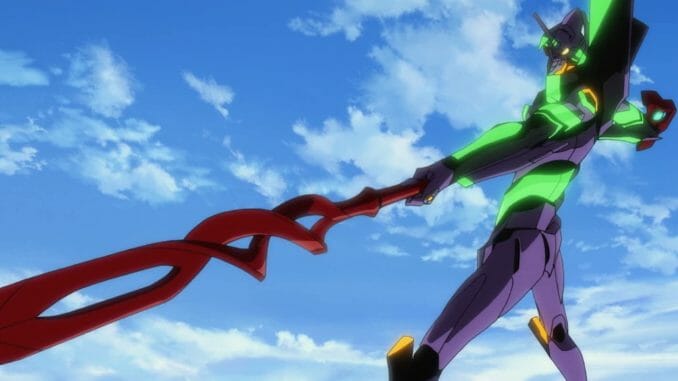
Since 1995, Neon Genesis Evangelion has penetrated the cultural consciousness with giant robots, angsty teens and esoteric Biblical references. It is the story of Shinji Ikari, a young boy destined to pilot a giant robot called Unit-01 in a future where creatures called Angels are destined to destroy humanity. But Shinji resists his fate, complaining at every turn and freezing with indecision as the survival of humanity lies on his shoulder. It is truly a one of a kind franchise, the brainchild of the genius and deeply depressed Hideaki Anno. It is a franchise that has plagued him for over 25 years, from a series to a slew of movies that worked to rewrite a dissatisfying ending. Now, Anno is finally done. With the release of his latest and last piece of Evangelion media, Evangelion 3.0+1.0: Thrice Upon a Time, the time of the Angels has come to an end.
Thrice Upon a Time is the fourth Rebuild of Evangelion film, which is a complete retelling of the events from the original series. It picks up after the events of Evangelion 3.0: You Can (Not) Redo as Shinji (Megumi Ogata) and his two fellow pilots Asuka (Yuko Miyamura) and Rei (Megumi Hayashibara) are stranded in a deserted part of former Tokyo, called Tokyo-3, after another near-apocalyptic disaster called Third Impact. They then arrive at a human settlement where they are able to meet surviving and thriving members of the human race.
Meanwhile, a resistance group called Wille engages in a massive battle with Nerv, an organization led by Shinji’s father, Gendo Ikari (Fumihiko Tachiki), with the goal to start human instrumentality—the forced evolution of humanity into a single, more evolved being. The two groups clash over a deserted Paris, complete with EVA pilot Mari (Maaya Sakamoto) using the Eiffel Tower as a javelin. It is a jaw-dropping display on animation that is able to capture the epic scale of the fight while also ramping up the tension with quick cuts from the battlefield to the bridge of a resistant battleship. The stakes have never felt higher, which is saying a lot for a franchise all about the survival of the human race.
As Shinji, Asuka and Rei reunite with Wille to prevent the Fourth Impact, Shinji finally accepts his fate and embarks on a truly mind-bending journey that breaks our ideas of time, space and existence. In typical Anno fashion, it is beautiful to look at, but barely makes a lick of sense upon first viewing. That is usually a bad thing, but Anno gets a pass because part of Evangelion’s allure is its ridiculously complicated lore and purposefully obtuse storytelling that is both frustrating and fascinating. No matter how many questions Anno leaves unanswered, it’s not enough to keep dedicated audiences away.
-

-

-

-

-

-

-

-

-

-

-

-

-

-

-

-

-

-

-

-

-

-

-

-

-

-

-

-

-

-

-

-

-

-

-

-

-

-

-

-



